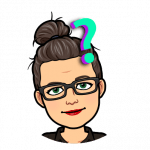(Reflection ETL401 Module 4 – The Teacher Librarian and the Curriculum)
(RSA Animate 2008) This is a very powerful video that offers a dichotomous view of an ‘education paradigm’.
Throwing the baby out with the bath water: While I agree that there has been (or in some cases, needs to be) a shift in the Australian education system, I am hesitant to throw out the baby with the bath water and dispose of outcomes. I have had great success with my students by utilising the NSW syllabus document outcomes and indicators. These have been regularly updated and rearranged over the years and each update, in my opinion, has improved the approach.
Similarly, so have approaches such as ‘play based learning’ or the ‘Reggio Emilia Approach’ / the environment as the ‘third teacher’ (Wein 2015), integrated units such as COGS and inquiry based learning (IBL) such as The Big6 or the Super3 / project based learning (PBL) models evolved over time and have been accepted and used by teachers to varying degrees and with varying degrees of success.
A Breath of Fresh Air: Anyone in the education system for more than 5 years will have seen enough new ideas blow in to the educational sphere to know that they generally blow straight back out to make room for the next big breeze, and leave very little in their wake in terms of real change.
I don’t think this ‘New Paradigm’ is a situation of ‘outcomes based learning’ vs ‘inquiry based  learning.’ I don’t think the two need to be pitted against each other in an argument reminiscent of the recent arguments about how to teach literacy as seen in media and other outlets, for example as per this 2017 blog post by Eleanor Heaton about phonics versus the whole language approach.
learning.’ I don’t think the two need to be pitted against each other in an argument reminiscent of the recent arguments about how to teach literacy as seen in media and other outlets, for example as per this 2017 blog post by Eleanor Heaton about phonics versus the whole language approach.
I see no reason why we can’t have both and simply be more flexible in the application of outcomes to meet real individual student needs.
The real issues with outcome based teaching are based in 1. a lack of authentic growth mindset (Dweck 2006) in adults and students – an inability to see mistakes as part of learning, 2. the social debate regarding reporting to parents and telling the students themselves or their parents that their child has or has not met stage outcomes based on a ‘letter’ mark or tick in a box. Far better, according to Hattie & Peddie (2003), for the system to simply say, ‘this is what sorts of things you/your child can do well, these are things that they are still learning or here are the learning goals for the future.’ It isn’t the outcomes at fault, it is how we’ve applied them to our practice as educators.
 [Sidebar 1: To this end, I am extremely interested in the Quality Teaching Framework to improve the structure of lesson delivery (if this is done through inquiry based teaching then so be it) and reading more about ability/interest/friendship grouping of students as opposed to age/year/stage grouping of students.]
[Sidebar 1: To this end, I am extremely interested in the Quality Teaching Framework to improve the structure of lesson delivery (if this is done through inquiry based teaching then so be it) and reading more about ability/interest/friendship grouping of students as opposed to age/year/stage grouping of students.]
[Sidebar 2: If you think Outcome based teaching is holding students back, don’t even get me started on the ‘Learning Progressions,’ ‘NAPLAN’ and the ‘Our Schools’ Website / league tables which have resulted in ‘teaching to the test’ and ‘school shopping.’ Gah.]
[Sidebar 3: If outcome models are so flawed and inquiry models are so perfect, why aren’t universities scrapping outcome based marking criteria and using inquiry models?]
Making assumptions about students: How students find information and their level of ability, particularly when it comes to electronic resources varies widely – much more so than adults realise and according to Coombes, “The basic premise of the Net Generation theory, that familiarity with technology equates with efficient and effective use and these achievements are only applicable to a specific group because they have grown up with technology, is flawed” (Coombes 2009, pp.32).
Technology is a tool, rather than a solution (Coombes 2009). Society has a new ‘digital age’ environment in which we live and we are expecting students to learn how to navigate it simply by being born amongst it. We have a new set of digital expectations in our society but have neglected to update our education system of our students to enable them to meet those expectations.
Information Search Process (ISP) skills / information literacy: Being able to recognise functions of a digital device does not automatically mean that students are able to access, process and absorb information on that they come across on said device (Coombes 2009). Students are overly reliant on the internet, have limited ability to search effectively, and are rarely able to critically evaluate information that they find (Coombes 2009).
The Role of Teacher Librarians (et al.): Educators have responsibility to lift their game when it comes to teaching students information literacy / searching skills such as collecting, managing and evaluating information (particularly when they believe the first thing that appears in their search is the most relevant or most accurate when in fact the first thing that comes up is based on their prior searches and the search engine’s popularity algorithms), finding the information again at a later date, and storing information for future use (Combes, 2007b in Coombes 2009).
Evidence and Assessment within the library: I like the list of ideas in ETL401 Module 3 (based on Valenza 2015) for evidence that the library program is of benefit to the school teaching and learning programs and curriculum. However, I am wary of introducing something that is trivial or that will not stand the test of time or that might sit in a filing cabinet – lost and forgotten.
For that reason, I will use the Quality Teaching Framework and the subsequent evaluation sheet (that I modified on GoogleDocs) to evaluate my lessons or units of work professionally, and will also use the (yet to be created) school library website or more private/access restricted photo/video-based programs (where accepted by the school) for evidence of student engagement or achievement such as ClassDojo, Seesaw or ClassCraft. The benefit of these applications is that they are also able to be used by students themselves, with any device (at home or at school).
I’m looking at you, teachers who profess to be techno-phobes! As Coombes’ 2009 work was written 10 years ago, and research within her article is based on the 10 to ‘teen’ age range, most of the students in her focus are now adults and quite possibly, teachers themselves. Those who are from current and previous generations, as educators, need to be aware of our own gaps in information literacy so that we can stop the cycle of poor information seeking skills!
The Blame Game: What I’ve also seen in education, in varying degrees based on context, is a lack of personal and professional reflection. A lack of ‘mindfulness’ and being in the moment. A wish for the utopian environment and an unrealistic desire for perfect students who fit into a mould and live up to unrealistic expectations and students who are compliant rather than collaborative (Goss & Sonnemann 2017).
This results in a filtering down of ‘blame’ for the poor foundational (primarily literacy and numeracy) skills that students have when they arrive into high school. The high school teachers blame the stage 3 teachers. The stage 3  teachers blame the stage 2 teachers. The stage 2 teachers blame the stage 1 teachers. The stage 1 teachers blame the kindergarten/prep teachers. The kindy/prep teachers blame the preschools. (And everybody blames the RFF teachers and the parents and finally, the students themselves).
teachers blame the stage 2 teachers. The stage 2 teachers blame the stage 1 teachers. The stage 1 teachers blame the kindergarten/prep teachers. The kindy/prep teachers blame the preschools. (And everybody blames the RFF teachers and the parents and finally, the students themselves).
What I’d like to see is every person involved in education taking a look in the mirror and reflecting daily on their pedagogical practice. What I’d like to see is everyone practising mindfulness–thoughtfully doing what they can with the students and contexts that they have in the moment in time in which they are living, and authentic growth mindset–appreciating that mistakes are part of learning.
References:
Combes, B. (2009). Generation Y: Are they really digital natives or more like digital refugees? Synergy, 7(1), 31-40
Dweck, C. (2016). What having a “growth mindset” actually means. Harvard Business Review, 13, 213-226.
Goss, P. & Sonnemann, J. (2017). Engaging Students – Creating classrooms that improve learning. Retrieved from: https://grattan.edu.au/wp-content/uploads/2017/02/Engaging-students-creating-classrooms-that-improve-learning.pdf
Hattie, J., & Peddie, R. (2003). School reports: “Praising with faint damns.” Journal issue, 3.
RSA Animate – Robinson, K. (2008). Changing educational paradigms. Retrieved from https://www.youtube.com/watch?v=zDZFcDGpL4U#aid=P8wNMEma2ng
Valenza, J. (2015). Evolving with evidence: Leveraging new tools for EBP. Knowledge Quest. 43/3, 36-43
Wien, C. A. (2015). Emergent curriculum in the primary classroom: Interpreting the Reggio Emilia approach in schools. Teachers College Press.
